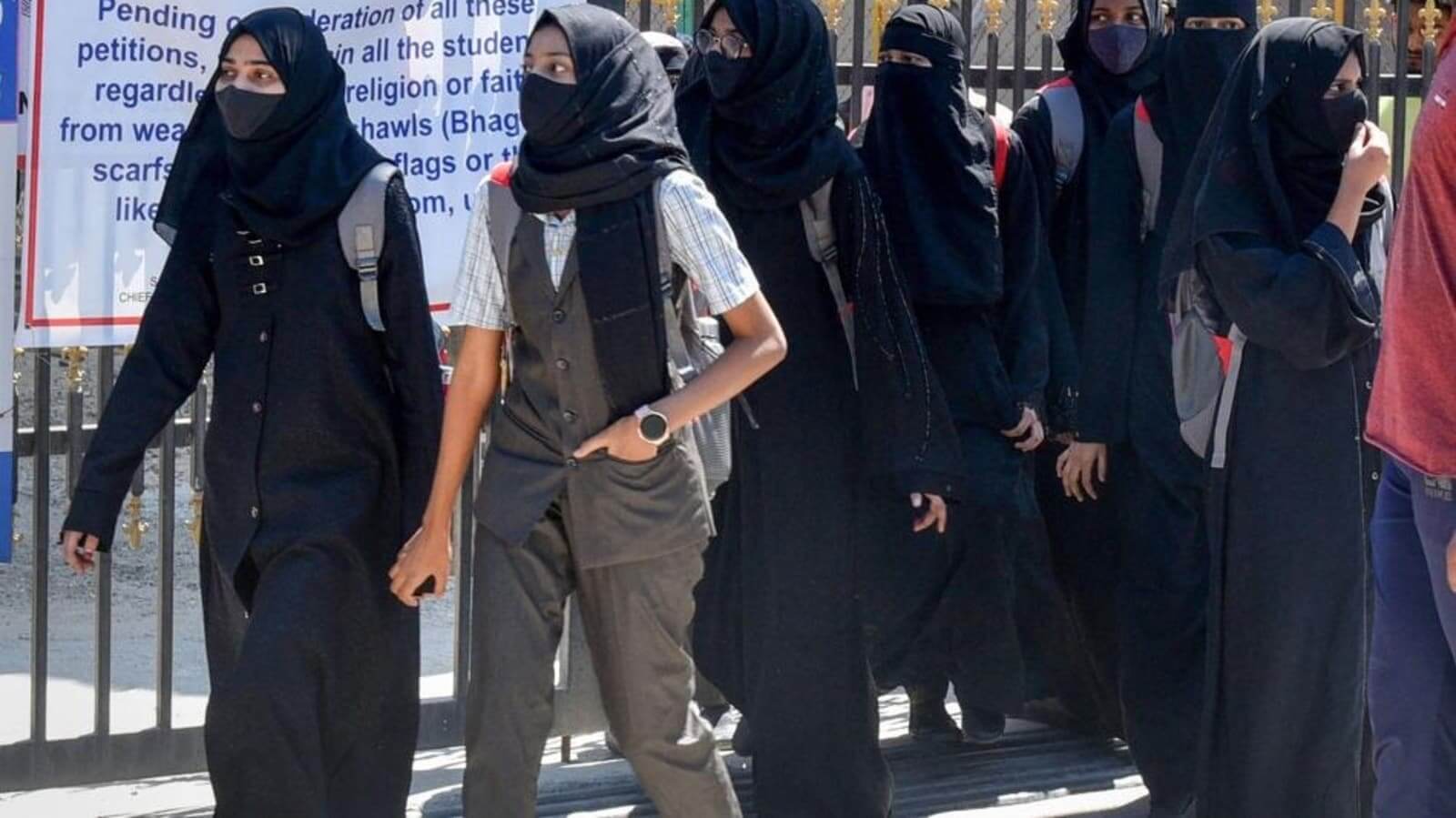The Pakistani government released a statement underlining its “serious concerns” about the Karnataka High Court’s decision to uphold an educational institution’s ban on wearing a hijab in its premises, asserting that the judgement constitutes an attack on the freedom of religious practices and human rights.
Islamabad said that the decision was a part of the Indian government’s “relentless anti-Muslim campaign” and could further accelerate the marginalisation of minorities in the country. In this regard, it called on the international community to address the issue and ensure the safety of minorities, especially Muslims, in India.
On Tuesday, the Karnataka High Court passed the 129-page order allowing a ban on hijabs in educational institutions, saying that wearing the hijab is not an “essential” practice in Islam, thereby upholding the state government’s ban on headscarves in schools and colleges. Quoting the Quran and other Islamic texts, the order said that there was “intrinsic material” to show that the hijab is merely “recommendatory,” and not “obligatory.” Keeping this in mind, it said that the practice of wearing headscarves could not be defined as “a quintessential aspect of the religion through public agitations or by the passionate arguments in court.”
In addition, the court said that the decision was made in the interest of emancipating Muslim women, with judges claiming that the order promotes the constitutional principles of “positive secularism.”
While there is no countrywide rule on uniforms, the High Court’s decision could result in other states following in Karnataka’s footsteps. In fact, the Students Islamic Organisation of India raised concern that the decision could set a “national precedent” and “embolden more states” to ban the hijab.
The concern has been echoed by Muslim political leaders, including former Jammu and Kashmir Chief Minister Mehbooba Mufti, who called the decision “deeply disappointing.”
Karnataka HC’s decision to uphold the Hijab ban is deeply disappointing. On one hand we talk about empowering women yet we are denying them the right to a simple choice. Its isn’t just about religion but the freedom to choose.
— Mehbooba Mufti (@MehboobaMufti) March 15, 2022
The controversy was instigated by the decision of an educational institution in Udupi, Karnataka to ban hijabs on its premises in January. Later, in February, the state government passed an order mandating uniforms in educational institutions and banning symbols that “disturb equality, integrity, and public order.” Subsequently, several Muslim women and rights activists gathered outside educational institutions to protest the decisions.
Meanwhile, several Hindu students supported the ban and barged into campuses and classrooms wearing saffron scarves, which has evolved as a symbol for radical Hindu groups. This led to several protests across the state, forcing the government to close educational institutions for several days.
Also Read: Will the Hijab Row Dent India’s Relations With Muslim Countries?
Numerous affected Muslim women approached the state’s High Court, claiming that the principles of freedom of religion enshrined in the constitution gives them the right to wear hijabs. According to a lawyer of one of the petitioners, the matter will now be appealed before the Supreme Court.
Meanwhile, the Central government has vocally supported the ban. Minister of Parliamentary Affairs, Coal and Mines Pralhad Joshi welcomed the decision and urged students to accept the order and maintain peace. Along the same lines, Minister of Home Affairs Amit Shah expressed his support for the Karnataka government’s order of mandating uniforms last month and advocated against religious attires in educational institutions.
Although Pakistan has seemingly stood in support of Muslim women and rights groups, it is plagued by its own challenges of religious freedom and expression. Several members of the Hindu community have recently and historically been targeted in Pakistan, including attacks on temples and on individuals. In fact, alongside India, the United States Commission on International Religious Freedom’s 2021 report listed Pakistan as a ‘Country of Particular Concern.’
It is also dealing with the issue of religious extremism. In December, a Sri Lankan factory manager in the eastern Sialkot district was attacked by angry supporters of the hardliner Tehreek-e-Labbaik Pakistan (TLP). Reports suggest that he was tortured and lynched, and eventually set on fire by a mob of over 800 men for allegedly throwing away a poster of the TLP that had Quranic verses on it.
More recently, just two weeks ago, the Islamic State’s (ISIS) regional arm in South and Central Asia, ISIS Khorasan (ISIS-K), claimed responsibility for the explosion at a Shia mosque in Peshawar on Friday that killed 62 and injured over 200.
Moreover, these issues are not only prevalent in its society but also in its government, given that it is one of just 17 countries in the world that legally require their head of state to be a Muslim citizen.

